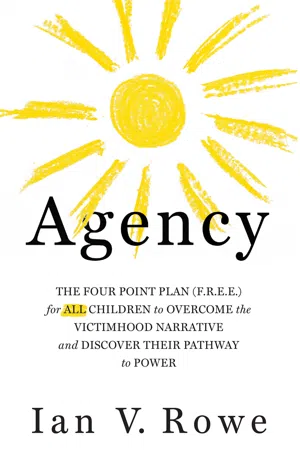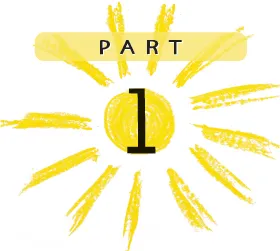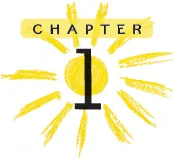![]()
What Is Agency and Why Do We Need It Today?
![]()
What Is Agency and Why Is It So Crucial to Human Flourishing?
On a Sunday evening in early September 1977, I did the unthinkable. I was twelve years old and standing in our living room. My dad sat in his brown recliner; my mum was next to him. I remember locking eyes with her as I spoke.
In the late 1960s, my parents, my brother, and I had emigrated to New York from Jamaica, West Indies. After a stint in Brooklyn, we “moved on up” and ultimately settled in Laurelton, which at the time was a predominantly white, middle-class community in Queens. However, Laurelton was changing from a Jewish enclave to what is now a neighborhood of mostly African American and Caribbean residents. In 1977 I was attending I.S. 231, a junior high school that had historically been mostly white. Like the surrounding area, however, I.S. 231 was rapidly becoming integrated. Racial tensions were growing and the increasingly bitter daily disputes were driving the school leadership to seek solutions.
Citing “overcrowding,” the local school board had voted to open an annex, a separate academic building located two miles away in Rosedale, a small, Irish American and Italian American community on the border of Nassau County, Long Island. That decision led almost every white family in my junior high school to transfer their children to the Rosedale annex, which made I.S. 231 a segregated, virtually all-black school.
My Jamaican immigrant parents, who were determined that their two sons would get their shot at the American Dream, were ready to transfer me as well. Wherever the white kids go, so goes high-quality education—that was their theory. My nineteen-year-old brother had already started college, so their decision was entirely about my education, and my parents knew best (full stop).
Dad and Mum would have crawled over broken glass if they thought it would help my brother and me to have a better life. They were my rock growing up. At the root of everything that I have ever accomplished are the sacrifices they made for me. But something was not right here. I did not want to leave my school. I loved my friends. I loved my teachers. I loved my school. And I did not accept the reasons my parents gave for transferring me.
I had never before questioned my parents about anything that really mattered. Why would I? They had repeatedly demonstrated that they had only my best interests at heart, even if that sometimes meant tough love. Surely this decision about school was simply another moment in which my parents’ wisdom and long-term thinking should outweigh my immature posturing.
But something inside me said no, so here we were facing off in our Laurelton living room. That is when I did the unthinkable. That Sunday night, the night before my parents had to file the transfer documents, I found a voice I had not known existed. I stood in our living room pleading with my mum and dad. I begged my parents to reconsider and let me stay in I.S. 231. “Why should the other school be better?” I asked. “Why should the education suddenly be worse in my school just because most of the kids who are going to be left are black?” I didn’t see why my education would have to suffer just because I refused to go to the school with all the white kids. I told my parents that if they let me stay in I.S. 231, I would work even harder. They would never regret their decision, I promised. They could believe in me because I believed in myself.
Perhaps at that moment my parents realized that my pushback was evidence of a strength of character that they themselves had helped to cultivate in me. Perhaps they hearkened back to a time in their own lives when they had had difficult conversations with their own parents about leaving Jamaica in pursuit of a better life. Whatever the reason, an amazing thing happened: my parents relented and said I could stay at I.S. 231. I think of this now as my coming-of-agency moment.
I often wonder what would have happened if I had not spoken up to my parents that Sunday night. What if my parents had not acquiesced and instead insisted that I attend the nearly all-white annex? Would I have exhibited the same ownership over my learning as I did when I convinced them to grant my wish to stay? (Sadly, my parents’ fears regarding I.S. 231 materialized. It became one of New York City’s most dangerous schools and closed in 2013 after consistently being on the state’s list of the lowest-achieving schools.)1
Yet in allowing me to forge a path contrary to their better judgment, my parents taught me a valuable lesson: my own effort would influence my outcomes. At the time, I felt an enormous, added responsibility to make my parents’ decision worth the trust they had placed in me. I was “on the hook.”
Something changed for me that Sunday night. Something had awakened in me to give my twelve-year-old self the confidence to respectfully challenge my parents. I had now become an active player in my own education as I took ownership of my own destiny. This self-belief was the precursor to the ensuing actions that were necessary for me to fulfill the commitment I had made to my parents and, most important, to myself. The faith I placed in myself was what I now understand to be my sense of personal agency. I had become an agent of my own uplift; I had exercised agency.
But exactly what is agency? The word agency is a linking of two Latin roots: ag—to “do, act or drive”—and ent—“that which does something.” Deriving from the medieval Latin word agentia, the word agent refers to one who does something in the “mode of exerting power or producing effect.”2 Thus it is small wonder that the word agency and the words agenda, agile, and agitate share the same Latin root concerning action. All four involve the tasks, movement, and drive we need to get things done. For me, however, the essence of agency goes beyond one’s capacity simply to achieve. The concept also encompasses one’s ability to persevere despite adverse conditions or hostile environments while simultaneously following a North Star of righteous behaviors.
The three pioneers who have most shaped my thinking about agency and self- determination are Reverend Martin Luther King, Jr., the religious and civil rights leader; Martin Seligman, the “father of positive psychology,” which is the scientific study of what makes life most worth living; and Albert Bandura, a psychologist who developed a theory of social cognition grounded in self-efficacy.
The practical wisdom of these three men holds that each of us has the capacity for conscious volition, which is the ability to make informed choices that determine our own fate. However—and this is the key—no human being acts alone. Agency is individually practiced, yet socially empowered. Unique to our species is the way in which early character development determines how those choices are shaped to achieve good or ill. All three men stress that social forces from a range of morally formative institutions can create the conditions under which young people exercise free will and build the mental muscle of agency.
Reverend King was awarded the 1964 Nobel Peace Prize “for his non-violent struggle for civil rights for the Afro-American population.”3 He had inspired a movement of largely young people (as he said in his acceptance speech in Stockholm) who were eager to move forward with “a majestic scorn for risk and danger, to establish a reign of freedom and a rule of justice.” But precisely how these freedom fighters demonstrated that “majestic scorn” would decide whether the larger objectives of the movement were achieved. King was keenly aware that black Americans were being victimized by subhuman treatment based on racial animus, but he believed that being victimized did not mean taking on a victim mind-set; nor did it mean that his followers had to respond in kind. King knew that if black Americans adopted and internalized an identity defined by victimhood or resorted to the vicious tactics they were condemning, they would sacrifice their moral authority and undermine the goal of self-determination. Instead, they must choose a path that achieved moral ends through moral means. “I refuse to accept the idea that the ‘isness’ of man’s present nature makes him morally incapable of reaching up for the eternal ‘oughtness’ that forever confronts him,” he said. “I refuse to accept the idea that man is mere flotsam and jetsam in the river of life, unable to influence the unfolding events which surround him.”4
King rejected powerlessness and passivity; but he firmly believed that substituting revenge for powerlessness was not the way for humans to achieve true freedom and flourish. By advocating for individual and collective self-restraint—a key component of agency—King felt that humanity would be much more likely to bend toward justice. In the end, he believed that while circumstances do impact and shape a person, they are not the sole determining factor in their life. Each person is responsible for their own choices and can choose to grow from mistakes and hardships. In short, Reverend King advocated agency.
Similarly, the theme of Marty Seligman’s fifty-year career as a psychologist has been the study of agency, which he sees as “the controlling engine of human progress.”5 Seligman defines agency as one’s belief that she or he can change the world for the better, which is the component of Seligman’s definition that I find most compelling. Free will exists for all humans. You can indeed change the world—but toward what end? Is it a world in which free will drives inspiring advances in human well-being or one marked by dark periods of terror and subjugation?
In short, agency is not free will alone. Rather, agency is the force of free will when it is governed by morally discerned choices that dictate its eventual impact. Efficacy, optimism, and imagination give free will a direction. They create the vector of agency. The philosopher William James seemed to understand that something preceded free will—something more important—as suggested in a diary entry, where he wrote, “My first act of free will, shall be to believe in free will.”6
Albert Bandura was one of the first psychologists to argue that a sense of personal efficacy forms the foundation of self-determination. “Among the mechanisms of agency, none is more central or pervasive than people’s beliefs about their capabilities to exercise control over events that affect their lives,” he wrote.7 “Unless people believe they can produce desired effects by their actions, they have little incentive to act, or to persevere in the face of difficulties. Whatever other factors serve as guides and motivators, they are rooted in the core belief that one has the power to effect changes by one’s actions.”8
Herein lies the paradox of agency, both its true promise and its peril. Its presence creates the conditions for unprecedented human advancement. It allows us to surmount previously insurmountable obstacles and endure the seemingly unendurable—while on a self-determined path to achieve widespread improvements in our social well-being. But the absence of agency is not a neutral, no-fault state of benign existence. An individual or society immersed in self-disbelief, pessimism, and closed-mindedness is like a planet in retrograde: it moves backward. According to Bandura, “people who perceive themselves as highly efficacious act, think, and feel differently from those who perceive themselves as inefficacious. They produce their own future, rather than simply foretell it.”9
To return for a moment to my own birth of agency, I stayed on at I.S. 231 and, with the support of my parents and teachers, I received a public education that made me believe anything was possible. I studied hard and ultimately entered Brooklyn Technical High School as a sophomore. From there I graduated with a BS in computer science engineering at Cornell University and an MBA from Harvard Business School. All this prepared me for leadership roles at Teach for America, MTV, the Bill & Melinda Gates Foundation, and the White House. Moreover, it brought me full circle by preparing me for the work I have done over the last decade: running New York City public charter schools that are dedicated to inspiring more young people to understand the pathways by which they can master their own fate.
I run high-performing public charter schools in the heart of the South Bronx in New York City because I believe agency is not some abstract concept to be debated in the ivory towers of academia, think tanks, or newsrooms. Each weekday morning, our principals and teachers greeted nearly 2,000 elementary and middle school students by name and talked with their parents and guardians at drop-offs and pickups. On issues large and small, from homework challenges to family conflicts and trauma to preventing deportation to financial concerns, our faculty tapped into the hopes and fears that our parents have for their children. Those daily interactions are a constant reminder of just how much parents entrust our schools with the responsibility to instill in their children the notion that they can create a better future for themselves. This experience has bolstered my view that agency plays a pivotal role in human flourishing for the next generation, driving it when present and resulting in its suppression when absent. Fundamental to my view is the idea that...






